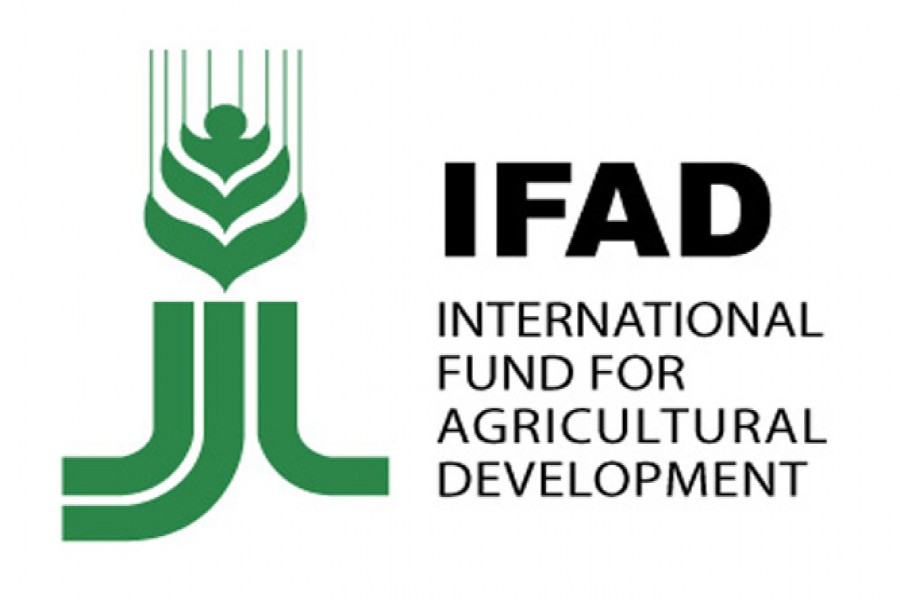President of the International Fund for Agricultural Development (IFAD) Gilbert F Houngbo on Thursday called for continued efforts to help remittance-receiving families build a sustainable future for themselves and their communities.
Houngbo’s message comes as the UN General Assembly adopted a resolution on Tuesday which endorses the International Day originally created by IFAD’s Governing Council.
The resolution highlights that remittances play a key role in sustainable development, according to a message received from Rome, Italy.
In 2017, 200 million migrants sent US$481 billion to remittances-reliant countries of which $466 billion went to developing countries, helping sustain about 800 million people across the world.
This amounts to more than three times the annual official development assistance that countries give in aid.
According to IFAD estimates, $6.5 trillion in remittances will be sent to developing countries between 2015 and 2030, involving over 1 billion senders and receivers.
Close to half of remittances will go to rural areas where poverty and hunger are the highest, reports UNB.
“Remittances are vital for millions of families, helping them address their own development goals, but we can help them do more and build their longer-term future,” Houngbo said ahead of the International Day of Family Remittances that falls on June 16.
According to IFAD analysis, families spend about 75 per cent of their remittances on basic needs such as food, housing, education and health.
Remittances help reduce hunger and malnutrition, improve education and health levels, and lift people out of poverty.
By doing so, remittances contribute directly to the Sustainable Development Goals set by the international community three years ago.
According to IFAD, the remaining 25 per cent, over $100 billion, can be invested in financial and tangible assets such as savings or small business development that help families build their future.
These productive activities can also create jobs and transform economies, particularly in rural areas.
“Given appropriate investment options, customised to their circumstances and goals, remittance families will invest more and become agents of change in their communities,” Houngbo said.
To this end, more than 400 decision-makers, representing the public and private sectors, civil society and IFAD, attending the Global Forum on Remittances, Investments and Development in Kuala Lumpur in May endorsed a set of recommendations to make remittances a full engine for development.
In particular, the recommendations propose ways to develop access to basic financial services, such as saving and credit, which are fundamental for families to make productive use of their money.
Today, most remittances are still received in cash and consumed immediately.
Recommendations were also made to develop investment mechanisms and opportunities tailored to the needs of diasporas keen to invest back home.
In recognition of the high cost of sending remittances, on the international day IFAD is calling for a further reduction in transfer fees.
While the cost of sending money has been reduced by half over the last five years, it still represents, on average, 7.13 per cent of the amount sent. In many places, costs are much higher, for example in Sub-Saharan Africa senders can spend as much as 9.3 per cent.
It is estimated an additional $20 billion would be available to families in developing countries if the 3 per cent fee target set by the international community in Sustainable Development Goal 10, reducing inequalities, was reached.
According to Pedro De Vasconcelos, senior remittance expert at IFAD, mobile technologies and digital money could potentially transform markets radically, reduce costs and time for sending remittances, in particular to rural areas but their development is still hampered by a lack of harmonization of regulations between countries.
“The promise of digital technologies still has to be delivered, it is imperative that regulatory environments enable the implementation of safe, cheap and rapid transfer solutions for the benefits of families,” De Vasconcelos said.
For more than a decade, IFAD has worked to increase the development impact of remittances.
Its dedicated programme has a portfolio of over 60 innovative projects in more than 45 countries.
Completed projects resulted in increased competition, reducing transaction costs through mobile technology, and promoted financial inclusion and literacy.


